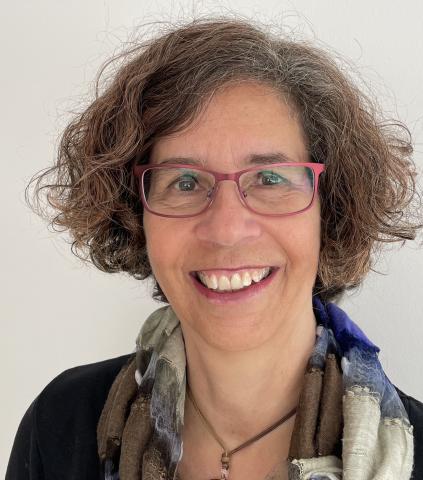Viola Vogel, Ph.D.
Professor
Laboratory of Applied Mechanobiology, Institute of Translational Medicine
Department of Health Sciences and Technology (D-HEST)
ETH Zurich
Seminar Information

Organ-specific cell niches are not composed of cell monocultures, but of a large variety of cell types which are in close contact to each other and communicate via biochemical and physical factors. Much progress has been made in the molecular understanding of how mechanical stimuli are sensed and transduced by cells into biochemical signals (mechano-signaling and mechano-transduction), which then regulate gene transcription processes and subsequently cell decision making. The reciprocal mechanical signaling between cells and their extracellular environment, and vice versa, involves the stretching of proteins as protein stretching can switch the structure-function relationships of extracellular and intracellular proteins, which defines the underpinning principle of mechanobiology. Translating what has been learned in mechanobiology (mostly on single cells) to real organs, and finally to the clinic, is hampered by at least two challenges: the lack of nanoscale sensors to probe forces or tissue fiber tensions in healthy versus diseased organs. To bring our knowledge to the patient, we developed a nanosensor to visualize the tensional states of ECM fibers in animal models and in human tissues, with many unexpected findings that were not anticipated from 2D cell culture studies. Underpinning mechano-regulated mechanisms and the significance of these findings will be discussed.
Viola Vogel is Professor of Applied Mechanobiology in the Department of Health Sciences and Technology (D-HEST) at the ETH Zurich. She holds a PhD in Physics from the University of Frankfurt (1987) based on her research conducted at the Max-Planck Institute for Biophysical Chemistry in Göttingen (1980-88) for which she received the Otto-Hahn Medal (1988). After her postdoctoral studies in the Department of Physics at UC Berkeley in nonlinear optics, she started her academic career at the University of Washington Seattle in Bioengineering (1990-2004) and was the founding Director of the Center for Nanotechnology (1997-2003). When moving to ETH Zurich in 2004, she initially joined the Department of Materials, and then co-founded (2012) and later chaired (2018-2020) the Department Health Sciences and Technology (D-HEST).
With her background in Physics and Bioengineering, she pioneered the rapidly growing field of Molecular Mechanobiology and its medical applications, as she discovered many structural mechanisms how mechanical forces can turn proteins into mechano-chemical switches. Such mechanisms are exploited by bacteria, as well as by mammalian cells and tissues to sense and respond to mechanical forces, and if abnormal, can cause various diseases. She showed further how bacteria, platelets, immune and stem cells are functionally tuned by mechanobiological factors, and how this impacts our abilities to fight infections, as well as blood coagulation and tissue growth processes. Her research was recognized by major awards, including an ERC Advanced Grant on “Proteins as Mechano-Chemical Switches” (2008-13) and the International Solvay Chair in Chemistry Brussels 2012. She served on various international advisory boards in the fields of nanotechnology and bioengineering, including on the PCAST panel that finalized the US National Nanotechnology Initiative under the Clinton administration (1999), as well as for the Max-Planck Society, A*STAR and CREATE in Singapore and the Wyss Institute in Boston. She was awarded an Honorary Doctor of Philosophy from Tampere University, Finland (2012), she served on the Board of Regents of the Ludwig Maximilian University in Munich (2011-19), serves on the Board of Trustees of the Gordon Research Conference Organization 2018, and is an Einstein Fellow at the Charité Berlin since 2017. She is an elected member of the National Academy of Engineering USA (NAE) since 2018 and of the National Academy of Sciences USA (NAS) since 2020, the National German Academy Leopoldina since 2018, and of the Berlin-Brandenburg Academy of Sciences since 2019. She is Member of the Jury of the Queen Elizabeth Prize for Engineering since 2014.
